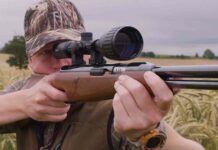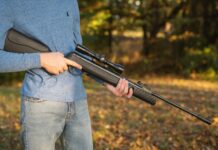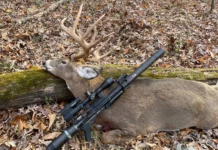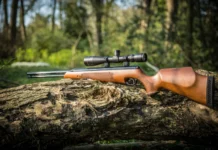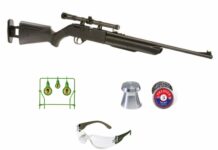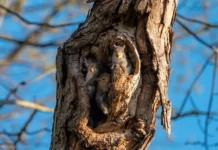How much are deer antlers worth? Probably not as much as you might think, especially when you consider the fact that the mere act of selling antlers from a wild deer can get you in a heap of Federal trouble if you’re not careful.
Appreciation and adulation of white-tailed deer antlers surely transcends us modern hunters. Indeed, huge-racked bucks were the fodder of native drawings, explorers’ diaries and settlers’ deer-camp confabs. However, it seems today’s deer fanatics have ramped it up a notch with an explosive trend toward buying and selling antlers of every size, shape and configuration via Internet auctions.
I had been remotely aware of the trend for hunters, collectors and other individuals to list their prized antlers, deer skulls and shoulder mounts on sites such as eBay. It wasn’t until a few years ago, however, that I realized the scope of what has become more than a cottage industry. And, it wasn’t until a friend inquired about the legality of some transactions that I realized the potential consequences facing antler buyers and sellers. In short, most states allow for the sale of antlers and taxidermy mounts of legally harvested deer.
Therein lies the catch: “legally harvested.” Buy or sell an illegally taken deer, and you could face prosecution for a Federal Lacey Act violation (illegally transporting wild game over state lines). In case you’re wondering, being lied to by a seller or merely being ignorant of the law won’t save you from possible prosecution. Again, most states allow sales of antlers from legally harvested deer. However, some require meticulous documentation.

In Oklahoma, for example, it is legal to sell an antler as long as it is completely removed from the skull plate and the seller provides a copy of the carcass tag as proof the animal was legally taken. In Missouri, all antler sales must be accompanied by a line-item bill of sale that shows the buyer and seller’s full names, addresses and detailed description of the antlers being sold.
West Virginia used to have a law that forbid the collection of shed antlers, but this was amended in 2017. That older law was rewritten to specifically to to clarify the circumstances in which naturally shed deer antlers may be lawfully collected, possessed and sold. The change came about via Senate Bill 473, which led to the following clarification: “Except for wildlife lawfully taken, killed or obtained, no person may have in his or her possession any wildlife, or parts thereof, during closed seasons. It is unlawful to possess any wildlife, or parts thereof, which have been illegally taken, killed or obtained. This does not include the possession of deer antlers that are naturally shed and collected by a person from his or her own land, from public lands unless prohibited by law, or from private lands with the written permission of the landowner in hand.”
It seems each state has slightly different rules, so you best do your homework before listing or bidding. Shed antlers are different. Some states consider them “forest debris” and have no laws for buying and selling. Other states consider them “animal parts” and lump them into the same category as intact racks.
Introduced by Iowa Congressman John Lacey, The Lacey Act was signed into law by President William McKinley in May 1900 to stem increasing trends in market hunting. The law was amended in 1969, 1981 and 1988 to include such things as logging, non-native species, indigenous plants and illegal guiding and outfitting operations.
Lacy Act felony prosecutions can bring fines up to $20,000 per individual and five years imprisonment. Misdemeanor prosecutions can bring fines up to $10,000 and one year imprisonment. Felony convictions can be pursued in any case where the sale or purchase of wildlife, fish or plants exceeds a market value of $350 or more.
Do you think states should regulate the sale of antlers and head mounts? Head over to our Facebook page and let us know what you think!
